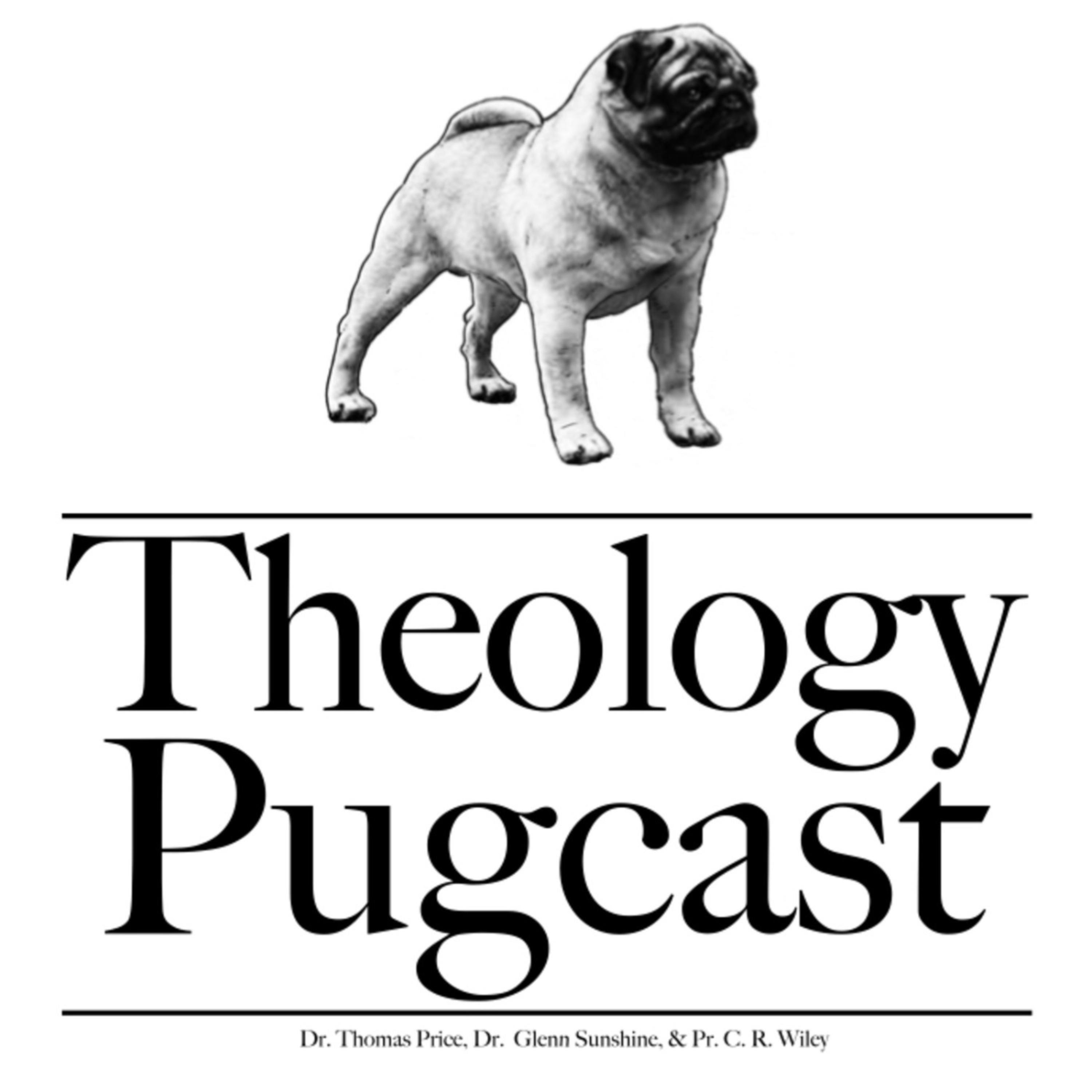

The Theology Pugcast
The Theology Pugcast
The Theology Pugcast is three over-educated Reformed guys grumbling about what bugs them, and sometimes even barking about what they like. The show usually is recorded in a pub--that's why there is some background noise on occasion. The topics can vary widely seeing as the Pugsters have different spheres of knowledge and interest, but common themes which appear regularly include the transcendence of God and the meaningfulness of His creation.
Episodes
Mentioned books

Jan 17, 2022 • 1h 6min
Talking About God Properly
Analogous talk of God and its importance is the topic of the day. Christians have a reality vision that allows us to use creaturely ways of talking about God. But today many talk of God in fundamentally idolatrous ways. The guys address reality issues as they pertain to God-talk and it’s significance for worship, doctrine, and life.

Jan 10, 2022 • 1h 6min
Stoics, and Epicureans, and Cynics, Oh, My!
Who were the philosophers that Paul addressed at Mars Hill in Acts 17? Today the Pugsters examine the outlooks of two schools of philosophy in antiquity--stoicism and epicureanism. And they look at how these schools of thought are making a come back today.

Jan 3, 2022 • 1h 2min
Shooting Rousseau Twice … and Clubbing Him with the Gun
Glenn has been the subject of memes about his attitude toward Rousseau. In this episode, he explains why, focused on three areas: Rousseau as the root of Carl Trueman’s Psychological Man; his attitudes toward education and women; and his political theory, its influence on Marx, and the death toll that came from implementing it. Tom and Chris add their own observations and analysis along the way.

Dec 27, 2021 • 1h 3min
Incarnation and Its Significance For Understanding All Things
Tom delves into many of the often taken for granted reality implications of the Christian teaching about the Incarnation of God the Son. He explores the riches of wisdom such biblical teaching has for a true understanding of divinity, humanity, creation and its relation to God. Chris and Glenn bring into the conversation many fascinating insights, angles, and draw out further some of the deep implications of the riches we’ve been given in Christ.

Dec 20, 2021 • 1h 2min
Christmas and Paganism
Returning to a topic the Pugsters have done before, the guys discuss the annual attacks on Christmas as a rip off of pagan myths and legends. Along with discussing things like the Jesus myth and the date of Christmas, the guys turn to a lot of areas that they didn’t cover the last time around on the topic.

Dec 13, 2021 • 1h 6min
A Requiem for the Church Growth Movement
Welcome to a funeral for the Church Growth Movement, Pugsters! In today's show Chris explains what the Church Growth Movement was, how it changed the character of evangelicalism and helped to destroy it, and why the movement has been killed by Covid-19, and the Woke-world that has followed. Church Growth was supposed to save the church--so why is it a good thing that it is dead? Join the Pugcast crew as they reflect on what's next for Christianity in the west now that Church Growth is dead.

Dec 7, 2021 • 51min
Bonus Q&A: Plato's Revenge!
Listen in for a question and answer session following yesterday's episode on Plato's Revenge.

Dec 6, 2021 • 1h 7min
Plato's Revenge!
The Pugcast finishes its Pacific Northwest Tour in Moscow, Idaho at the Nuart Theater! The theme for the show is Plato--and why he just won't go away. It is something of a cottage industry in certain pockets of the Reformed world to write off one of the most important figures in the history of western thought. Paradoxically, this puts these people on the same page with many secular thinkers--like Nietzsche for example. He didn't like Plato either. But are these folks right in their blanket condemnations of the father of classical philosophy? Augustine didn't think so--and the Pugsters agree with him. Tune in and find out why!

Nov 29, 2021 • 1h 2min
Culture and Worldview: What's the Difference?
In today's show the Pugsters continue their Pacific Northwest Tour--this time from a boatyard in Everett, Washington! The crew is being hosted by Trinitas Presbyterian Church and the guys are addressing a question put to them by the leadership of the church--"What's the difference between 'worldview' and 'culture'? How does a worldview relate to culture, and what implications does this have for Christian ministry?"

Nov 22, 2021 • 45min
The Prohibitive Cost of a Seminary Education
Has inflation made a ministerial education unaffordable? It seems like it. Today a Master of Divinity degree—something that most Reformed denominations require for ordination—can leave the typical ministerial student tens of thousands of dollars in debt. This might be forgivable if pastors were paid like medical doctors, but they’re not. But we need an educated clergy, so what can be done? Join the Pugcast today for a short episode on the subject as they talk about the problem with a couple of men in Oregon City, Oregon who are trying to address the problem.
Learn more about Reformation Bible Institute at rbioc.org


